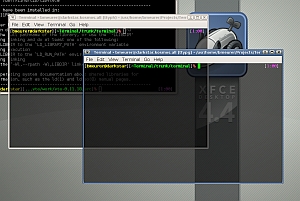If you are using Yum to manage packages from multiple repositories it may be beneficial for you to not update a particular package against a specific repository in favor of another one. To do this, simply add the following line to the Yum configuration file for the repository you want to ignore:
exclude=packageName1 packageName2 packageName3
For example, say in CentOS 5 you wanted to not update the php-pecl-mailparse package against the Epel repository. You would edit the file /etc/yum.d/epel.repo and add the exclude line like so:
[epel] name=Extra Packages for Enterprise Linux 5 - $basearch #baseurl=http://download.fedoraproject.org/pub/epel/5/$basearch mirrorlist=http://mirrors.fedoraproject.org/mirrorlist?repo=epel-5&arch=$basear$ failovermethod=priority enabled=1 gpgcheck=1 gpgkey=file:///etc/pki/rpm-gpg/RPM-GPG-KEY-EPEL exclude=php-pecl-mailparse ...


